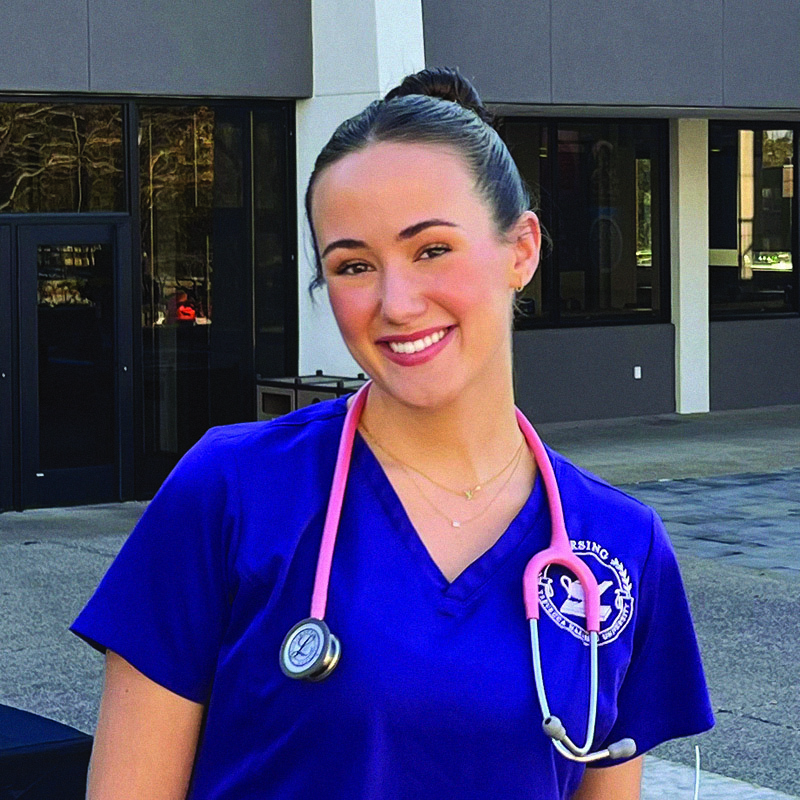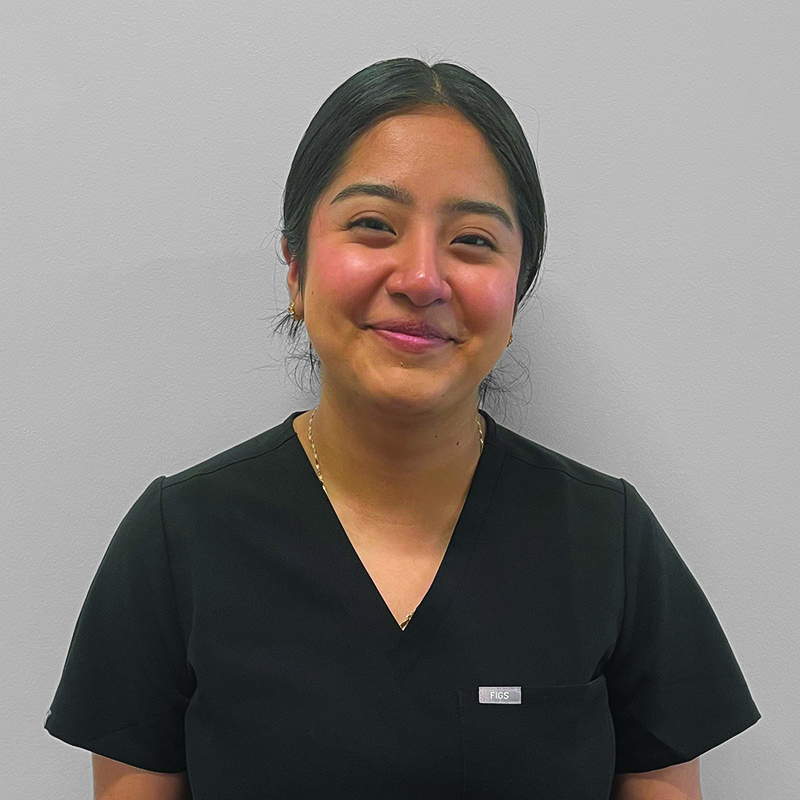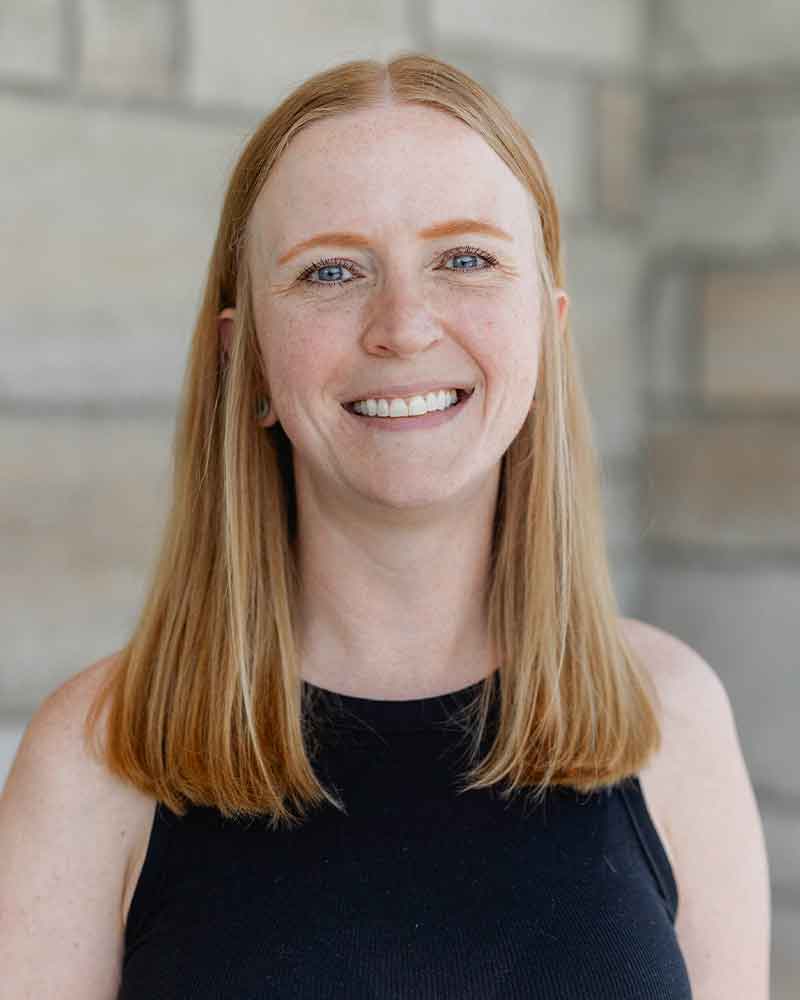Nursing
Trevecca’s Bachelor of Science in nursing prepares you to fill a vital healthcare role that’s in great demand in Nashville, across Tennessee and throughout the world. You’ll train to become a nurse who practices with professionalism, excellence and compassion.
Program Benefits
- Learn from faculty who have expertise in multiple areas of the nursing profession, who have relevant and valuable real-world experience and who make an effort to know you personally.
- Enjoy small class sizes and individual attention in a supportive campus community.
- Utilize Trevecca’s partnerships with major healthcare organizations like Ascension Saint Thomas to gain invaluable clinical experience.
- Take advantage of valuable internships and job opportunities available in the exciting Nashville healthcare market.
- Get an affordable nursing education with highly competitive undergraduate tuition rates.
- Benefit from a flexible, transfer-friendly schedule by beginning upper-level courses in either fall or spring.
Hands-on Training at the Advanced Clinical Learning Center
The Advanced Clinical Learning Center at Ascension Saint Thomas Hospital West provides Trevecca nursing students with unique and innovative training opportunities inside a state-of-the-art healthcare facility. With advanced simulation labs, collaborative spaces and technical resources, the center adds a new dimension to the nursing education experience.
What to Expect
Your Bachelor of Science in nursing from Trevecca will equip you to safely practice professional nursing with intelligence, compassion, courage and faith. The bachelor’s in nursing program is committed to educating servant leaders, supporting students as they explore the ways faith intersects with healthcare. Your professors will model excellence in teaching and get to know you personally as they provide a holistic education that focuses on your intellectual, social, emotional, physical and spiritual health.
In partnership with prominent healthcare providers, Trevecca’s nursing program provides hands-on clinical experience in a functioning medical facility. Completing the clinical portion of the program with organizations like Ascension Saint Thomas and Vanderbilt University Medical Center, you’ll learn effective nursing practices as part of a training experience that truly prepares you for your calling in the medical field.
Start dates in both the spring and fall semesters allow you to enter Trevecca’s nursing program at any time of year, whether you’re transferring from another school or being added to a wait list elsewhere.

This program is more than a series of courses; it is a transformative experience that shapes my understanding of care, compassion and community.
Course Descriptions
Get details on all the courses you’ll complete as you work toward this degree at Trevecca.
Read MoreHere’s a look at the approximate tuition rates you could expect for this program at Trevecca. Please note that rates and fees are subject to change.
Here’s a look at the approximate tuition rates you could expect for this program at Trevecca. Please note that rates and fees are subject to change.
COST/semester
$14,295
*Scholarships available to reduce cost. $2,000 nursing fee assessed.
- Transfer Students
- Healthcare Partners
- Accreditation Information
Trevecca has expanded its capacity to meet Tennessee’s healthcare needs by providing both spring and fall start dates for upper-level nursing classes. This convenient schedule with multiple entry points allows transfers and other students to get started in the program right away upon admission to the program, regardless of what time of year their undergraduate coursework was completed.
By beginning multiple cohorts during the academic year, Trevecca helps transfer students avoid potential wait lists so they can move more quickly into the healthcare field as well-trained, compassionate professionals.
To strengthen the pipeline of future nurses and ensure that more Middle Tennesseeans have long-term access to high-caliber healthcare, Trevecca partners with major healthcare organizations that play a key role in the clinical aspect of a student’s nursing education.
Trevecca nursing students complete clinical rotations at Ascension Saint Thomas facilities. They also have the opportunity to complete pediatric clinical rotations through Vanderbilt University Medical Center.
By training under seasoned professionals through these respected healthcare providers, future nurses at Trevecca gain invaluable field experience to conclude a thorough and comprehensive degree program.
Note: Upon granting of initial accreditation by the ACEN Board of Commissioners, the effective date of initial accreditation is the date on which the nursing program was approved by the ACEN as a candidate program that concluded in the Board of Commissioners granting initial accreditation.
Career Opportunities: Bachelor of Science in Nursing (BSN)
With a Bachelor of Science in nursing from Trevecca, you’ll be prepared to enter the healthcare field or to continue your studies in a graduate program. Your BSN allows you to practice nursing in diverse roles and settings like hospitals, clinics, physician’s offices, public health facilities, the military, the international mission field, civic organizations and more. Roles could include:
- Medical surgical nursing
- Intensive care nursing
- Maternal and newborn nursing
- Pediatric nursing
- Mental health nursing
- Community nursing
- Nursing leadership and management
- Nursing research
- Home health nursing
- Senior care and assisted living facility nursing
- Medical missionary nursing

I couldn’t imagine our clinical experiences going any better. They provided an education that I will never forget. Every test, skill check, laugh or tear was a one-of-a-kind experience.
Our Faculty
-

Natalie Hall
Assistant Professor, Nursing
-

Tammy Henderson
Nursing Instructor
-

Cynthia Swanson
Assistant Professor, Nursing
-

Penny Bacon
Professor, Nursing
-

Christy Twining
Assistant Professor of Nursing
-

Brooke Rupert
Assistant Professor and Clinical Coordinator
-

Ruth Corey
Director of Nursing Program
Dr. Ruth Corey is the director of nursing and the Nursing Department chair. She also holds the rank of professor of nursing and nursing education and research. She graduated from the University of Central Florida (UCF) with her bachelor’s degree in ...Read Full Bio
Course Descriptions
Get details on all the courses you’ll complete as you work toward this degree at Trevecca.*
Life, Calling, and Purpose
INT 1100
English Composition I
ENG 1020
Emphasizes the recursive writing process through appropriate determination of subject, audience, purpose, and style, with correct usage of grammar, punctuation, and logical organization. Students will use appropriate technologies for writing and learning.
English Composition II: Critical Reading, Writing, and Thinking
ENG 1080
Emphasizes intellectual and analytical reasoning through reading and writing assignments. Includes instruction in library and research technologies and the writing of a research project.
Speech Communication
COM 1010
A study of the principles and practices of effective human communication, with emphasis placed on public speaking. The course emphasizes the critical thinking and skill development necessary for effective speech. Listening skills are included in the study.
Financial Stewardship
BUS 2010
Provides the student with a basic understanding of his or her economic environment and the basic principles and tools of personal financial management. Emphasis will be placed on personal financial planning, including budgeting, managing personal debt, insurance, taxes, investments, and real estate. When possible, topics will be analyzed and discussed from a Christian perspective.
Introduction to Health and Wellness
HPE 1500
Designed to assist the student in their understanding and development of a healthy lifestyle. Emphasis is placed on the components and behaviors that promote lifelong, positive outcomes in the five dimensions of wellness: physical, emotional, intellectual, social, and spiritual. Includes a fitness laboratory component. Fee charged.
General Psychology
PSY 2010
General introduction to major areas of psychology with emphasis on the psychological bases for understanding human behavior. A recommended prerequisite to other psychology courses except PSY 2175.
General Biology I
BIO 1510
An introduction to fundamental concepts in the biological sciences including the organization of living matter, cellular structure and function, food production by photosynthesis, energy harvest, mechanisms of cellular reproduction, genetics, and evolution. Discussions of current scientific issues will also be included. Lecture and lab. Fee charged.
World Literature
ENG 2000
Designed to engage students in dialogue with a variety of Western and Non-Western world literature, past and present. ENG 2000 is a recommended prerequisite for all upper-level literature courses.
Introduction to Biblical Faith
REL 2000
An introduction to Biblical faith and literature designed to help the student acquire a knowledge of the basic content of Scripture as well as be able to employ basic Bible study skills.
Christian Tradition
REL 3000
An introduction to theology as it has developed in the history of the church with a view to understanding the relation between faith and life. Special attention is given to understanding the doctrine of holiness.
Christian Life and Ministry
REL 4000
An integration of Christian spirituality, life, and ministry. Through a wide variety of readings and experiences, care is given to evaluate the spiritual structure of the student and to understand spiritual gifts, disciplines, and what it means for each individual to be a constructive influence in the Church and society.
World Civilizations: Ancient and Medieval World
HIS 1400
A course of study from ancient times to the 1500s dealing with persistent and recurring political, social, and economic issues in history that thinking people have examined and that have shaped our contemporary world. This course covers Western and non-Western cultures. Offered every semester.
World Civilizations: Early Modern and Modern World
HIS 1450
A course of study from the 1500s to the present dealing with persistent and recurring political, social, and economic issues in history that thinking people have examined and that have shaped our contemporary world. This course covers Western and non-Western cultures. Offered every semester.
Introduction to Philosophy
PHL 2010
A general introduction to the study of philosophy, both Western and non-Western. The course is organized around three domains of philosophical reflection: metaphysics, epistemology, and ethics. Representative philosophers from Socrates to Confucius will be used to illuminate the philosophical task. The course also includes discussion of world religions as representatives of non-Western philosophy.
Ethics
PHL 3070
A philosophical analysis of the narratives and principles that have contributed to moral and ethical norms for human action.
Microbiology
BIO 2820
A survey of microscopic organisms with emphasis on bacteria and fungi. Classification, morphology, cultivation, and identification will be studied in both lecture and lab. The role of these organisms in the ecosystem, industry, and disease will also be discussed. Lecture and lab. Fee charged.
Statistical Analysis for the Sciences
MAT 1350
An introductory statistics course with an emphasis on exploratory and inferential techniques for analyzing and modeling data. Topics include descriptive statistics, regression, probability distributions, confidence intervals, hypothesis testing and experiment design. Statistical software is implemented throughout the course.
Human Growth and Development
PSY 2175
A survey of development from conception throughout the life span.
Anatomy-Physiology I
BIO 2010
A study that includes the anatomy of the body as a whole. Emphasis will be on anatomical structures and organizational relationships of the organs and systems of the body. General physiology of each system and the major influence systems have on one another is emphasized. Laboratory studies include dissection of the cat and study of various skeletons, models, and charts. Lecture and lab. Fee charged.
Anatomy-Physiology II
BIO 2020
Designed to introduce the anatomy and physiology of multiple subsystems including the endocrine, vascular, lymphatic, respiratory, digestive, urinary, and reproductive systems. The focus will be on developing a working knowledge of the anatomy and physiology of these subsystems that can then be applied to clinical case studies and laboratory experiments. A major objective of this course is to develop critical thinking skills that are essential for students entering various medical careers where they will serve Christ by serving others. Lecture and lab. Fee charged.
Nutrition
BIO 2700
A study of how chemical principles and biochemical pathways create certain nutritional requirements for humans in various states of health and disease. Emphasis will be given to the needs of pregnancy, infancy, adolescence, sports conditioning, maturity, and nutritional therapy in some disease states. The possible benefits of proper nutritional practices for our culture, wellness programs, and managed care will be discussed. Lecture.
Introduction to Chemistry for Nursing
CHE 1015
Assessment
NUR 3001
eleven body systems providing the student opportunity for the enhancement of physical assessment skills. The
purpose of this course is to provide the student with knowledge and skills basic to health assessment in nursing
related to both the adult and geriatric patient. This course emphasizes evidence-based practices with a focus on
critical thinking skills and their use by the nurse for accurate collection and analysis of patient health data. Based on
assessment findings, this course will guide the student in the documentation process to include a complete history
and physical examination.
Foundations
NUR 3002
Pharmacology in Nursing
NUR 3003
Pathophysiology
NUR 3004
Adult Health I
NUR 3005
Research and EBP
NUR 3006
Mental Health
NUR 3007
Leadership and Management
NUR 3008
Adult Health II
NUR 4001
Obstetrics and Newborn Care
NUR 4002
Community Health
NUR 4003
Introduction to Critical Care
NUR 4004
Pediatrics
NUR 4005
Senior Capstone Practicum
NUR 4006
World Aesthetics (Choose one) — 3 hours
Fine Arts
MUS 1500
Designed to give students a historical perspective of music, art, sculpture, and architecture from ancient times to modern times.
Music Appreciation
MUS 1550
Presents the basic building blocks of music and fosters attentive, intelligent listening to music of different genres and historical periods. Helps the students appreciate, understand, and develop critical thinking skills on selected genres, styles, and periods in the Western European tradition of music as well as examples of music from outside this tradition. Third-party fee required.
Concert Choir: Aesthetics
MUS 1822
TNU Singers: Aesthetics
MUS 1822
Jazz Ensemble: Aesthetics
MUS 1832
Trevecca Symphony Orchestra: Aesthetics
MUS 1833
Open to students and Nashville community by audition. Continuous openings for strings and occasional openings for winds and percussion. Opportunities to perform stimulating symphonic orchestral and string literature on campus and beyond. This course partially satisfies the World Aesthetics requirement of the General Education Curriculum.
Wind Ensemble: Aesthetics
MUS 1834
*For a complete list of courses, tracks and other relevant information, view the program's course catalog.
Related Articles
-

Trevecca Hosts Health and Wellness Fair at Napier Elementary
Trevecca hosts a health and wellness fair at Napier Elementary, engaging students and the community through interactive wellness ...
Read More -

Notes from Nursing School: Morgan Mullis
Explore the transformative journey of a nursing student at Trevecca, highlighting the challenges, growth and invaluable hands-on ...
Read More -

Here’s How Trevecca Prepares You For Some of the Best STEM Jobs
Explore how Trevecca Nazarene University prepares students for top STEM careers with hands-on experience, academic rigor and a ...
Read More

